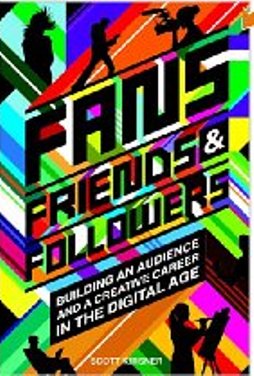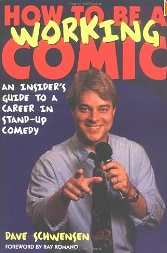This is the second part of what I found to be the most important quotes from the book Fans, Friends and Followers. (Part 1 can be found here.)
“My idea of success is the ability to make your films your way, and share them with people all over the world. That’s success.” -M dot Strange (56)
“In neither case did we think, “A-ha, this will get people to buy our records.” It has always been our position that the reason you wind up in a rock band is you want to make stuff. You want do creative things for a living.” -Damian Kulash (62)
“Every show I do, people sign up for the mailing list. Bill Clinton considered his presidency a permanent campaign, and that’s the way you have to look at your career.” -DJ Spooky (65)
“I spend more time interacting with the audience than I spend recording and producing the show.” -Brian Ibbott (76)
“I figured that the way to do it is to give out your complete archives for free, which increases the viral nature of the site, and it turns casual fans into die-hard fans, and even evangelists for your art online. It can take years of relationship-building before someone considers themselves a fan, and is willing to plunk down money.” -Dave Kellett (83-84)
“I understand why people don’t want to put in the time it takes to develop an audience and a business, or who don’t think they can make it work. It’s definitely an investment of time – maybe close to a decade – but most careers take a decade or so of investment before something really happens. Think about a doctor. The careers worth having are worth working for over years and years.” -Dave Kellett (85)
“As an artist, you have to do it because you love it. If you’re doing it for that reason first, you’ll find you’re producing better work, which attracts an audience. They can tell when you’re enjoying it. That carriers you through what are going to be lean years.” -Dave Kellett (85)
“I do several different things. I write, I act, I do stand-up, and I make films. You can now do a hundred different things, and they all come together to form your career.” -Eugene Mirman (100)
“The only advice I have is, you should go do things and try things, and in ten years, you’ll most likely succeed.” -Eugene Mirman (100)
“The whole thing is, you’re freelancing. If you expect that some big company will swoop in and give you a bunch of money and make you a star – that’s a flawed business model.” -Eugene Mirman (101)

 In the first part, Scott lays out the “new rules” of building an audience such as “Be remarkable and make remarkable stuff”, “Understand the power of the link” and “Help people learn to do what you do”. While artists new to social media may find this section insightful, this section is just a reminder of what the rest of us should already know. After reading Seth Godin and other online thought leaders for the past few years I found myself alternating between a state of “oh yeah, I forgot about that” and nodding along impatiently waiting to get to some new secret formula.
In the first part, Scott lays out the “new rules” of building an audience such as “Be remarkable and make remarkable stuff”, “Understand the power of the link” and “Help people learn to do what you do”. While artists new to social media may find this section insightful, this section is just a reminder of what the rest of us should already know. After reading Seth Godin and other online thought leaders for the past few years I found myself alternating between a state of “oh yeah, I forgot about that” and nodding along impatiently waiting to get to some new secret formula. 
